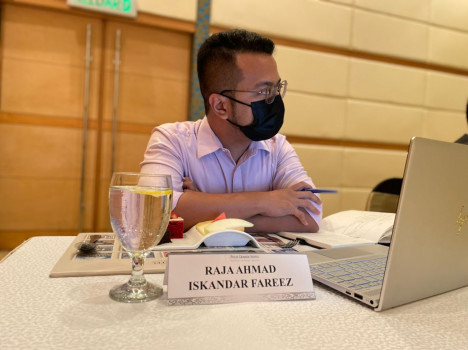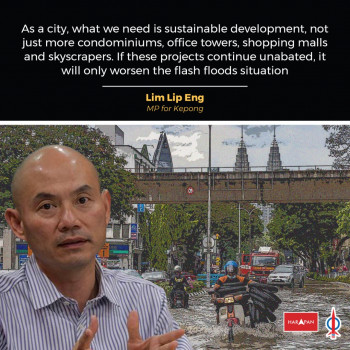by John Oommen
I am an Indian who grew up in a middle class family. I was blessed to attend a primary school that played a large part in shaping my life to come. This school was made up almost entirely of poor kids, or children from uneducated families – most of whom were Malays.
During my time in that school most of my friends were Malay boys, and I got to enjoy some really interesting things about Malays: the way they ALL have nicknames that have no connection whatsoever to their given names (e.g. a guy named Mohd Fadli would be called Rusa for); they have their own unique brand of humour that is really enjoyable and impossible to imitate; they’re often extremely mischievous on the surface, but deep down mild mannered and well behaved; they’re almost always humble, generally kind and unselfish; they were some of the most gifted athletes and ‘sportsmen’ I had ever seen – and they were lots of fun.
Most of them didn’t do very well in class, but looking back as an adult I can see that it was just not something they were generally encouraged in or motivated to do. Almost all my teachers were Malay, too. I still remember many of them who were inspiring and dedicated, and who made a deep impact on my early life. Fortunately, I have absolutely no memories of being treated any differently for being a different race than them.
Sadly, when I went to secondary school, I began to see glimpses of what is now the norm in our political landscape: there were a select few Malays who made everything a racial issue – if you had a problem with one Malay guy, it meant you had a problem with all Malays. Thankfully, my primary school experience had given me two things that often helped me smooth out these situations: 1) I knew that these guys were an exception to all Malays, not the norm that I knew of personally; 2) Having had mostly Malay friends for 6 years left me speaking Malay like a Malay (something I am very proud of to this day), and this always seemed to convey to those guys beyond words that I wasn’t like ‘the rest of them’ (non-Malays) who acted like they looked down on Malays and thought they had every right to.
My time in secondary school left lots of good memories, too. Of course there were plenty of good Malay friends who were hardworking and did really well in the classroom, and absolutely thrashed everyone else in sports. But among my more unusual memories was the time our scout troop decided to join an expedition walking from KL to Pahang (yes, you read that right). A lot of the journey was made through the kampung roads for safety. Along the way I stopped at many kampung houses to ask for water, and all happily obliged. One Malay mak cik said water was simply too little to offer, and after my trying in vain to refuse more, she finally insisted air sirap was the least she could give me. Another time I came across a Malay family having lunch together on their wooden house patio. They absolutely refused to give me just water, and insisted I join them for lunch. So I shyly enjoyed a full meal of rice and chicken curry, being served like an honoured guest throughout.
My point in all this? Today, many of us are angry at the politicians who spew racial slurs and breed hatred among Malaysians, but the truth is most of us are a part of that system – and we have started to think along those lines too, whether or not we admit it. These days most Malaysians don’t even mix with anyone outside of their own race. At best, the non-Malays mix with each other and the Malays only mix among themselves. If we’re honest, we non-Malays are often extremely guilty of believing the lies we’re told about Malays and how they feel about us. I’m very thankful that any time I make the stupid mistake of getting angry and believing all Malays are like our idiotic politicians, I can slap myself and remember that I know better.
Ignorance is the best friend of racism and bigotry, and those who seek to divide us feed on our ignorance – our ignorance towards the Malays and their ignorance towards us. Both can be solved very easily: the next time someone makes a negative statement about another race, don’t just assume it’s the truth and believe it – make an effort to befriend people of that race, and find out for yourself what they’re really like. You’ll often be pleasantly surprised that they’re not so different from you, and they’re really not out to get you.
PS: I’ll keep praying for the day that in Malaysia ‘race’ can only mean ‘Malaysian’. Feel free to join me.
* The views expressed in this article are the personal opinion of the columnist and this article first appeared in Loyar Burok




Pingback: The non-Malay dilemma | PR